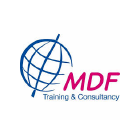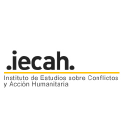WORKING WITH DG ECHO AS AN NGO PARTNER | FPA 2014 - 2020
DEROGATION AND EXCEPTIONS
TYPES OF DEROGATIONS
CASES FOR DEROGATION
The main reasons to derogate from Annex III to the FPA are usually related to:
-
security, operational, technical or quality reasons;
-
shortfall or unavailability of the supplies on the markets;
-
costs or delays due to transport;
-
legislation in the country of operation, or
-
if the fulfilment of the contractual obligation would harm the Partner’s mandate or the safety of its staff or beneficiaries.
DEROGATIONS IN URGENT ACTION
To properly manage the procurement during an urgent action, the partners have to include in their procurement procedures provisions on urgent actions and exceptional circumstances, while maintaining respect of the mandatory principles.
EXCEPTIONS ON QUALITY ASSURANCE DOCUMENTATION
The Annex III is mandatory in all cases as far as quality of food and medical supplies is concerned, regardless of ECHO contribution and regardless of the value of the procurement contract.
Thus, where the partner, for circumstances beyond its control, is unable to demonstrate compliance with internationally accepted product standards, it must demonstrate that the procedures used ensure equivalent quality assurance to international standards, which includes at least compliance with the “do-no-harm principle” and the standards accepted by the national or regional regulatory authorities.
Where the partner, for circumstances beyond its control, is unable to demonstrate compliance with internationally accepted product standard, it may demonstrate instead that the supplies offer the best quality available. Reasons for this inability to rely on traditional, internationally recognised assurance may be linked to import or other obstacles in place by the national authorities or may be a result of the remoteness of the implementation of the Action or other factors beyond the partner's control.
As a general principle, exceptional cases should be discussed with ECHO as soon as possible after they arise, taking into account that the important consideration is the safety of the staff and of beneficiaries. When structural issues are known to exist in an area, these should be raised from the outset in the Single form in section 11. Together with ECHO the partner will, in these exceptional circumstances, be able to agree on an alternative way of demonstrating that the supplies offer the “best quality available”, e.g. by reliance on the standards set by the national or regional authorities.





